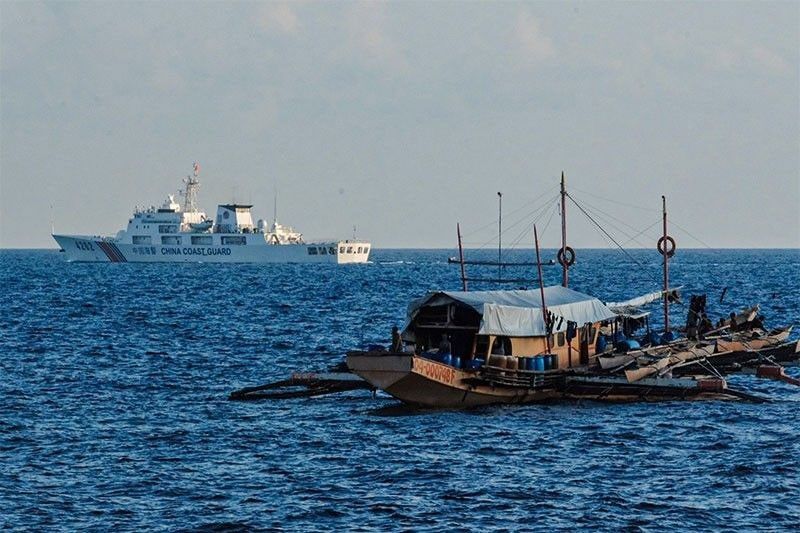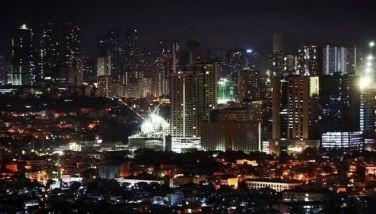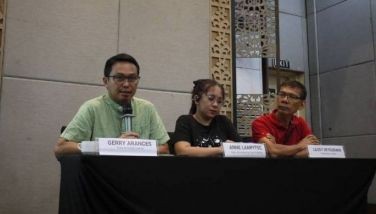China bullying hurts our economy


China’s bullying in our exclusive economic zone at the West Philippine Sea is hurting our economy, particularly the energy sector. It is disrupting exploration and development of oil and gas. Whatever resources may be there will remain untapped; a tragedy given our urgent need for domestic energy sources.
China is preventing us from exploiting potential hydrocarbon deposits at the Recto bank. We urgently need a replacement for the Malampaya gas field in Palawan which supplies 20 percent of the Luzon Power Grid’s requirements.
For now, we are lucky Ricky Razon’s Prime Energy has been able to squeeze out enough gas at Malampaya to power the natgas plants in Batangas at full capacity, a blessing in these critical times when other aging power plants are down and/or derated.
Eric Jurado, writing on his blog International Investor, noted that “despite significant natural gas discoveries, projects like Vietnam’s ‘Blue Whale’ remain stalled due to Chinese interference…The Philippines, facing an imminent energy crisis with the depletion of the Malampaya gas field, struggles to access its own resources amid Chinese maritime encroachments.”
This leaves us dependent on costly energy imports whose reliability is subject to geopolitical disturbances that are many these days.
The closest and most viable prospect to replace Malampaya is in the Sampaguita field in Recto bank, also known as Reed bank. I recall that we have done extensive studies in the area some decades ago to determine the presence of structures that could contain hydrocarbons.
In 2013, the US Energy Information Administration estimated it to hold 5.4 billion barrels of oil and 55.1 trillion cubic feet of gas. That’s 63.5 times more oil and 20.5 times more gas than Malampaya. But we have to drill to confirm the existence of the deposit.
Recto bank is 120 miles from Palawan, well within the Philippines’ 200-mile exclusive economic zone. It’s 650 miles from Hainan, China’s nearest province, thus outside its EEZ. China can’t claim it by its arbitrary “nine-dash line.” The Hague arbitral court affirmed that in 2016.
The Philippine government has long awarded Service Contract-72, covering Recto to Manuel V. Pangilinan’s PXP Energy Corp. and subsidiary Forum Energy Ltd. They have been ready to drill and they have lost money as Chinese gunboats chased Forum’s vessels away several times.
Assuming there are recoverable deposits at the Sampaguita field in Recto bank, petroleum and/or natural gas can be pumped via a pipeline that will connect it to Malampaya. From there, it can be pumped to mainland Luzon through the existing 504-kilometer pipeline of Malampaya.
Chinese bullying is driving investors away. The risks in oil and gas exploration are already high without the geopolitical uncertainties created by China. Jurado noted that investors in oil and gas exploration would rather go to more stable regions over those embroiled in maritime disputes.
The ever-growing tensions in the disputed waters means China is winning in this standoff.
Bill Hayton, a journalist and author of The South China Sea: The Struggle for Power in Asia, whose book I cited last week and interviewed for a Bloomberg article, observed that “The tactics have worked. China has effectively established a veto over new oil developments within the U-shaped line.”
As a result, Bloomberg reports that “The Philippines is slated to spend nearly $1.4 billion on LNG purchases through September 2025, while Vietnam is set to pay $370 million during the same period, according to calculations based on BloombergNEF forecasts. While the countries had long-planned to import fuel to power their growing economies, their energy supplies are at risk from delays in developing more domestic sources.”
Bloomberg adds: “It’s the smaller nations in Southeast Asia which are suffering…Even with US support, Manila has found that pushing back on Beijing within the Philippines’ exclusive economic zone – an area that extends 200 nautical miles from its coast – is a high-risk affair.”
Other problems: Offshore developments in Southeast Asia can be more technically challenging and expensive than assets elsewhere, making the region less attractive for the oil majors. Meanwhile, lengthy delays for local government approvals and contracts have upended projects.
A good example is Cinco Prospect (SC55) in the Sulu Sea, a potentially large prospect near petroleum rich Sabah.
Former Energy Undersecretary Rufino Bomasang told me that BHP Petroleum had been ready to drill in 2013 but was hampered by the year long delay in the approval of BHPP’s strategic environmental permit, which ultimately led to its withdrawal from the Philippines.
Otto Energy, an Australian firm, took over the service contract but also withdrew, because as Bomasang wrote in his biography, “the perception that the government agencies involved in approving and processing permits had become too bureaucratic and there was too much red tape.”
Bomasang said Otto drilled Hawkeye-1 in the area but did not find oil, Otto’s main interest, but hit gas. “The presence of gas in the area improved the prospectivity of the nearby Cinco in the same service contract area, which the BHP geologists believed to be gas prone.”
SC 55 is in the middle of a proven regional oil and gas fairway that extends from the productive offshore Borneo region in the southwest to the offshore Philippine production assets northwest of Palawan.
Bomasang told me if commercial quantities of natural gas deposits are proven, it could be connected by pipeline to Malampaya and from there to the existing pipeline to Batangas.
SC 55 is now under ACE Enexor Inc., the oil and gas exploration and production unit of the Ayala Group. Difficult to imagine Ayala would risk very large amounts to drill enough wells to confirm commercial deposits. Big risk taking isn’t Ayala’s game. Maybe if Ricky Razon joins the consortium, it just might move, hopefully soon because we need a Malampaya replacement quickly.
Boo Chanco’s email address is [email protected]. Follow him on X @boochanco
- Latest
- Trending




























